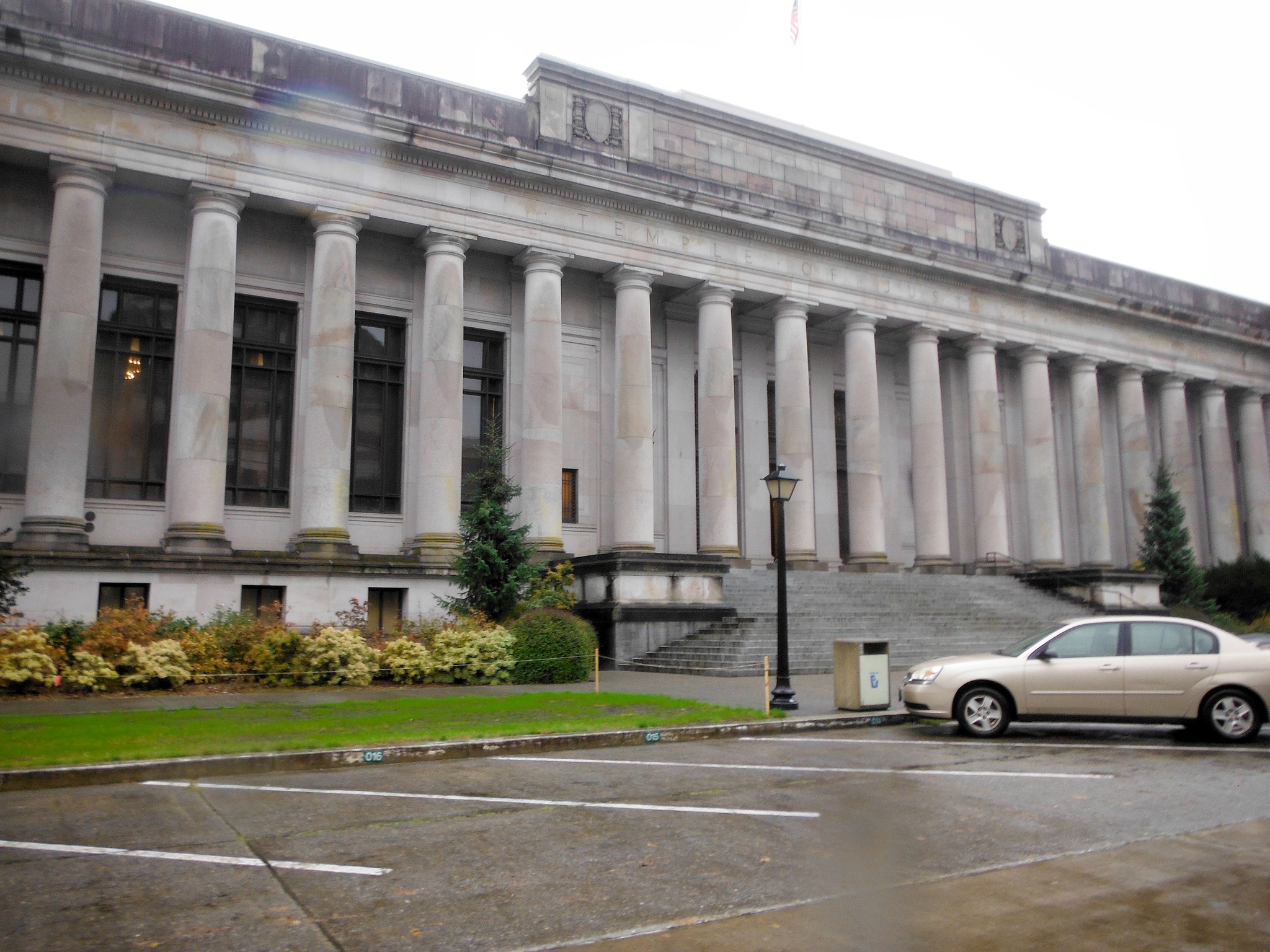The state Supreme Court heard oral arguments Thursday to answer one question: Does Westway Terminals’ proposed oil transportation and storage project at the Port of Grays Harbor fall under the regulatory umbrella of the state’s Ocean Resources Management Act?
Earthjustice attorney Kristen Boyle, arguing for the Quinault Tribe, which sued the City of Hoquiam and the state Department of Ecology, said it did indeed fall under the more stringent requirements of ORMA, enacted in 1989, as opposed to those in the Shoreline Management Act of 1971, which Hoquiam and the DOE is using to make decisions about the facility.
“We have one question before us. Does ORMA apply to Grays Harbor?” Boyle said before the justices. “ORMA was passed with the idea that the federal government would cover the area (of regulating the ocean) but now we had a local statute to provide further protection.”
She further argued as to the intent of the Legislature in crafting ORMA, saying the act was meant to be used in addition to existing shorelines and ocean regulations. “The Legislature set criteria for permit approvals affecting coastal waters in the state,” she said. The proposed Port project would be “an ocean use activity,” meaning the provisions of ORMA would apply.
Boyle argued ORMA governs both coastal and ocean use. One justice spoke of the specific language of the act, which says coastal or ocean activities, not coastal and ocean, which “implies the two are not interchangeable.”
Specific language in ORMA also shows it was intended to be used in the Port project permitting process, said Boyle. She argued the environmental impact statement released by Ecology Sept. 30 points to several negative impacts the project could have on tribal and commercial fishing and other uses of the area. The act reads, she pointed out, “When conflicts arise among uses and activities, priority shall be given to resource uses and activities that will not adversely impact renewable resources over uses which are likely to have an adverse impact on renewable resources.”
Another justice asked Boyle if there was any indication the Legislature intended the broad interpretation of ORMA or the more specific interpretation used by Ecology and the Division II Court of Appeals when it ruled in favor of the city and DOE in October 2015. Boyle admitted there was not, but it was her hope the justices would see it differently.
“I believe the broad interpretation was intended,” she said.
Counsel for Ecology was up next and argued just the opposite was true.
“The statute (ORMA) was intended to fill the gap (in regulations) for construction and development in the ocean,” said state Assistant Attorney General Tom Young. “This (the Port) facility is on land. It deals with the transfer of oil. There will be some construction on the dock, but not in the water.”
He argued the references to coastal waters and shorelines in ORMA refer only to environmental and other impacts that originated from ocean-based development, such as off-shore oil drilling. He said that under the broad interpretation of ORMA suggested by Boyle the construction of a private home in Long Beach could be placed under the restrictions of the act. When asked by one justice, “If a ship does spill at sea, does ORMA cover it?” Young answered no. “ORMA is not intended to apply to a boat on the water. If so, there would be some evidence of that intent” during the legislative process creating the act. If the Legislature intended to include shore-based projects under ORMA, “there would have been comments, notes, discussions,” he added. “There is nothing on the record about that. The state already had shorelines regulations but nothing for projects out in the ocean. That is what ORMA was intended to do.”
Another attorney for the state added “ORMA is not triggered by impacts, but activities. It is triggered by uses in open water, not a pipe on a deck.”
On rebuttal, Boyle was asked if the Legislature had intended a broad interpretation of ORMA, why were the provisions of the act never applied in the nearly 30 years it has been in existence. She admitted she did not know, but finished by repeating the act was supposed to be interpreted to cover projects with potential to impact coastal waters and shorelines whether they were based on land or at sea.
A small group of Grays Harbor residents opposed to the Port project made the trek to Olympia and took the opportunity to mingle with counsel from both sides of the argument after the hearing concluded. Justices will now go about rendering their decision, for which there is no specific timeline. If the panel concludes the appellate court decision was correct and rules favorably for Ecology and the city, Westway’s permitting process will continue as it has since late September. If the Court rules in favor of the Quinault Tribe and environmental groups taking part in the suit, a whole new review process for the project will have to take place before any construction could begin.


